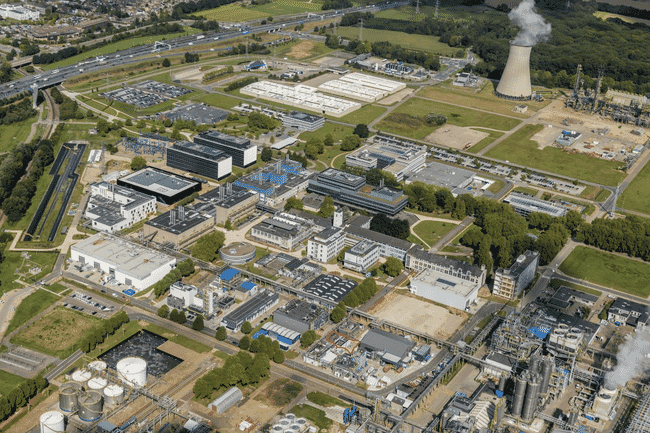
Using microbes to convert CO2 from industrial emissions into a new type of single-cell protein, called Proton, Deep Branch has developed a low carbon animal feed with a nutritional profile that is comparable with fishmeal, the gold-standard protein source in aquafeed.
"Unlike fishmeal, Proton can be produced year-round, reducing the impact of any seasonal fluctuations in price or yield," says the company in a press release.
Complementing the REACT-FIRST project, the UK-based firm will use the European Innovation Council (EIC) Accelerator funding to build a new facility at the Brightlands Chemelot Campus, a Dutch hub for circular chemistry and chemical processes, which Deep Branch expects to be operational by Q2 2021.
The REACT-FIRST project brings together 10 consortium partners from industry and academia that share a commitment to tackling the global climate crisis and achieving net zero carbon emissions in the food production industry. Extensive research and testing will help the partners to gather valuable data about the cost, digestibility, nutritional quality and carbon footprint of Proton.
Working with renewable power company, Drax, as well as a consortium of industry-leading partners, the technology has already been proven on a smaller scale. This latest funding will enable Deep Branch to scale up increasing production to enable animal feed manufacturers to expedite performance testing of the new protein.
Peter Rowe, CEO of Deep Branch, said: "In the UK, and in Europe, poultry and farmed fish are usually fed on fishmeal and soy, which is mainly imported from South America and has a huge environmental impact. We are developing a new, sustainable way of producing animal feed, which reduces CO2 emissions by more than 90 percent, compared to the currently used protein sources.
"Setting up the pilot plant represents an important next step in finding the perfect recipe for Proton that meets the requirements of feed producers. We’ll be undertaking further trials with BioMar and AB Agri, two leading animal feed companies that support the salmon and poultry farming industries. Thanks to the EU’s Horizon 2020 research and innovation support, we can expand our production capacity to match the volumes that feed producers need to run these trials.
“Brightlands Chemelot Campus is the ideal location for our Scale-Up Centre, and there is a clear alignment between our goals and the facility’s overall ambitions for CO2 recycling and sustainable hydrogen use. The industrial site gives us the ability to scale up quickly and has room for a large-scale production facility as well as the raw materials to create Proton. We have access to everything we need.”



